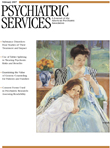The Ethical Brain
Michael Gazzaniga has written an intelligent, insightful, and provocative book that is ready to assume its place in the line of important contributions that evolutionary science and sociobiology have made toward the development of a scientifically based ethic. His conviction about the relevance of cognitive neuroscience for matters moral and ethical is resonant with the bold claims of Edward O. Wilson and the early sociobiologists, who challenged the restraints of the "naturalistic fallacy."
This book is most compelling in its demonstration of the critically important insights that cognitive neuroscience has to offer in current moral debates, including the abortion issue; the emerging questions regarding brain enhancement; and the unreliability of witness testimony. Dr. Gazzaniga demonstrates a "prudence" that takes counsel from his own cautions against letting beliefs and theories harden innate moral responses that are only contextually relevant into absolutist positions. His proposal—that brain enhancements that do not violate the social contract implicit in our natural sociality have a sturdier moral claim than those that would give us an advantage over others—is one example of the discriminating manner in which he introduces the insights of cognitive neuroscience without activating anxiety about positive eugenics. He is not afraid of the slippery slopes in any of these debates, it would seem, because he is unusually confident that the innate moral guidance system will assert itself.
The book is also ambitious because of the wide audience that Dr. Gazzaniga seems intent on reaching. He is clearly speaking beyond his relatively small enclave of cognitive neuroscientists to the cadre of intellectuals who have been sidetracked by the benign nihilism of postmodern antifoundationalism. He also speaks to an even broader public that seeks refuge from the moral crisis of postmodernity in the conviction that the "war of poetry" embraced by Nietzsche can be won, if not by conquering then by shaming one's opponents into silence.
If Dr. Gazzaniga is correct, the Enlightenment still has hope because there is a new, scientifically validated foundationalism in town. Of course, his is not the first call for a universal morality. He stands in good company among ancients and moderns alike. He is better situated, though, in the company of those moral philosophers from the Enlightenment who distanced themselves from their predecessors by eschewing metaphysics, lowering their sights, seeking new foundations, and taking their bearings from generally observable human behavior. In either case, it seems now that the first guesses of ancients and moderns can be safely considered with the heuristic provided by cognitive neuroscience. Dr. Gazzaniga's case is for a universal natural morality is enticing. Such a morality is more accessible because it is acquired through relaxing our moral confusion rather than through the arduous discipline of a life of virtue. However, the imagination being what it is, it is still going to be a long walk back to the state of nature.



